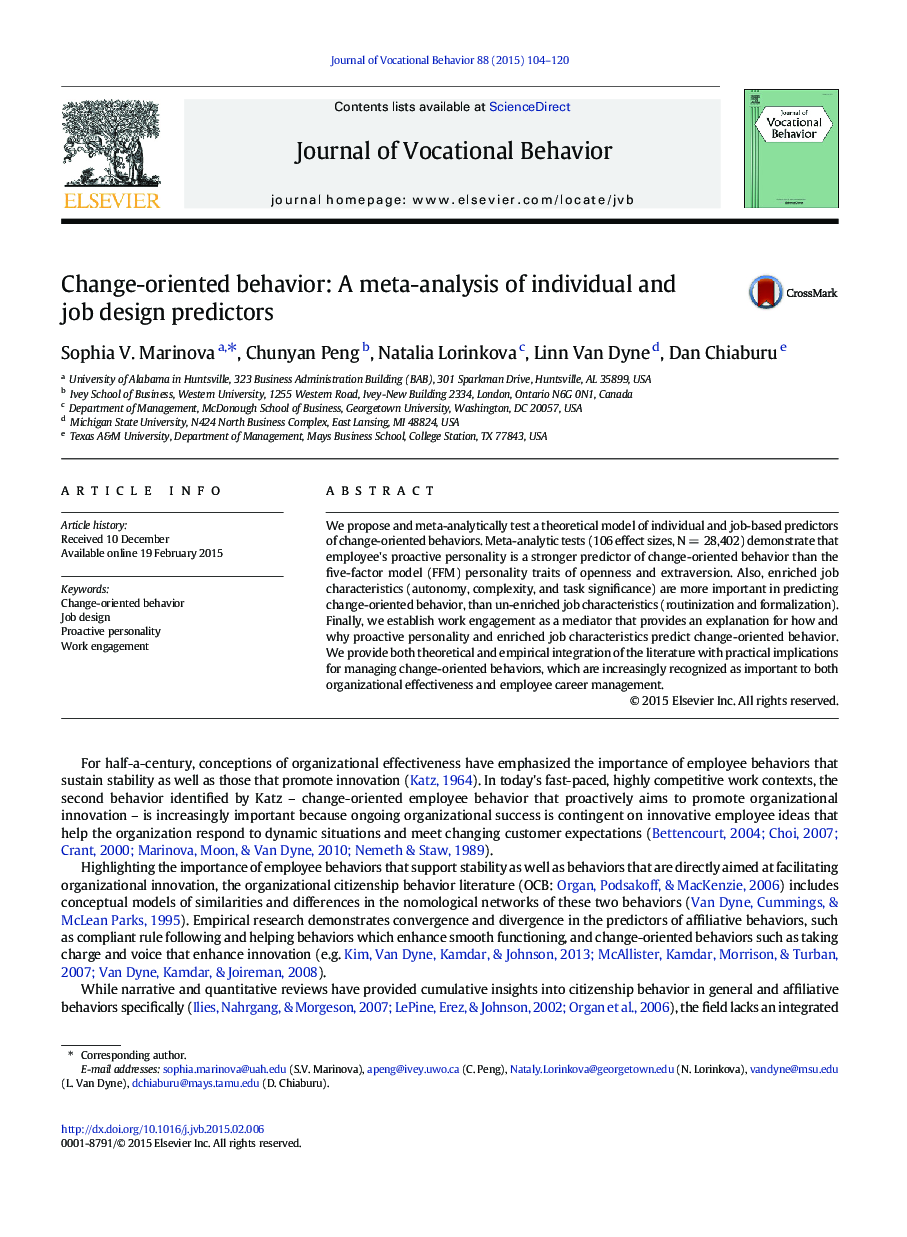| Article ID | Journal | Published Year | Pages | File Type |
|---|---|---|---|---|
| 886763 | Journal of Vocational Behavior | 2015 | 17 Pages |
•We develop and test a meta-analytic model of employee change-oriented behavior (106 effect sizes, N = 28,402).•Proactive personality emerges as the strongest predictor compared to other traditional traits.•Enriched job characteristics are positive predictors of change-oriented behavior.•We compare the strength of enriched and un-enriched job characteristics.•We position work engagement as a multi-faceted mediator that helps explain underlying motivational processes.
We propose and meta-analytically test a theoretical model of individual and job-based predictors of change-oriented behaviors. Meta-analytic tests (106 effect sizes, N = 28,402) demonstrate that employee's proactive personality is a stronger predictor of change-oriented behavior than the five-factor model (FFM) personality traits of openness and extraversion. Also, enriched job characteristics (autonomy, complexity, and task significance) are more important in predicting change-oriented behavior, than un-enriched job characteristics (routinization and formalization). Finally, we establish work engagement as a mediator that provides an explanation for how and why proactive personality and enriched job characteristics predict change-oriented behavior. We provide both theoretical and empirical integration of the literature with practical implications for managing change-oriented behaviors, which are increasingly recognized as important to both organizational effectiveness and employee career management.
